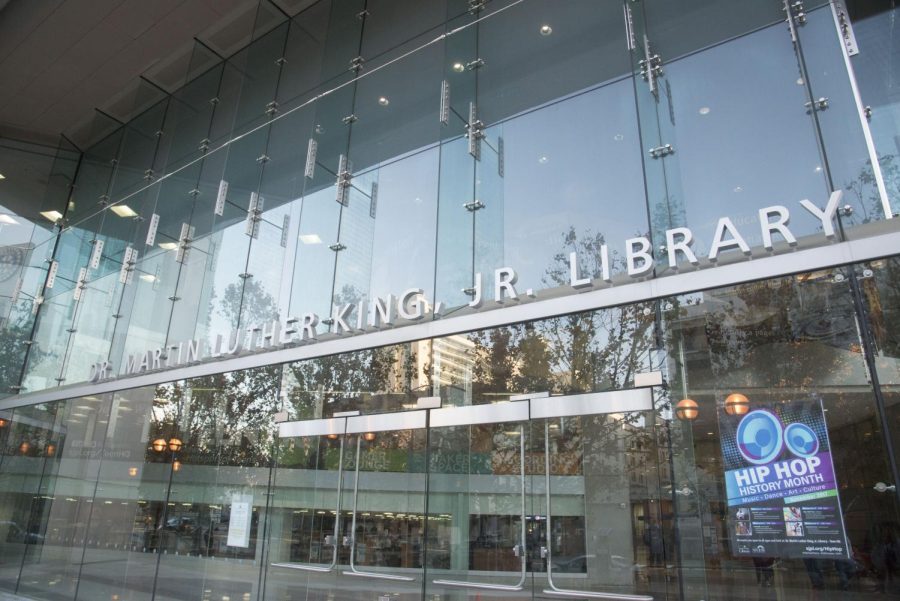Why De Anza students aren’t allowed at MLK Library’s extended hours
Martin Luther King Jr. Library claims its reputation as the host library for San Jose State University, boasting eight floors and plenty of amenities for those that use the library as a place to grind and get some work done.
Recently, MLKL implemented an extended open hours policy for SJSU students, in effect as of 2017.
The policy was put into effect this year to accommodate students who need Wi-Fi or a quiet place to study overnight.
This same policy does not apply to De Anza students however, which has been met with criticism from those who rely on the library.
“I think it’s lame we can’t stay as long as SJSU students. MLK is useful for me since it’s closer to my home than De Anza,” said Daniel Vong, a computer science major from De Anza. “There’s also a parking garage that has an electric charging station for my Prius, within walking distance to the library.”
Many De Anza students are residents of San Jose, so they often use MLKL for its convenience, as it’s located downtown.
La Voz correspondent Kurt Catacutan is one student from De Anza who frequents the library.
“What makes MLK more desirable than our on-campus library is the level of work and planning that was dedicated to the architecture of the building and the layout of all eight floors,” Catacutan said. “An individual utilizing MLK as a work station has countless options on which floor, what area, and what type of seating they prefer.”
Beginning in 2012, SJSU had agreements with five San Jose community colleges, including De Anza.
Each college paid $500 to allow their students to have access to the extended hours policy.
According to Patricia Harris, media relations director for SJSU, the college decided not to renew these agreements at the end of the year 2016.
“The reason for ending the community college agreements is security,” Harris said. “However, SJSU introduced a guest pass system. This allows a community college student to access extended hours with an SJSU student friend.”
Harris went on to explain that SJSU is reviewing the situation.
“There appears to be no way for SJSU to digitally authenticate community college student IDs. As a result, it is possible non-students were entering the library during extended hours with expired or invalid IDs,” Harris said. “This contributed to overall concerns about safety.”



